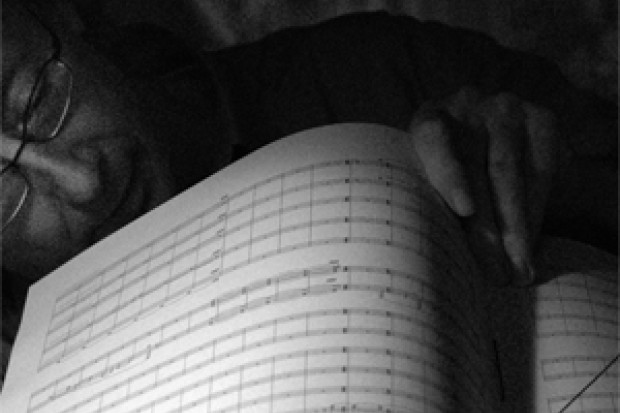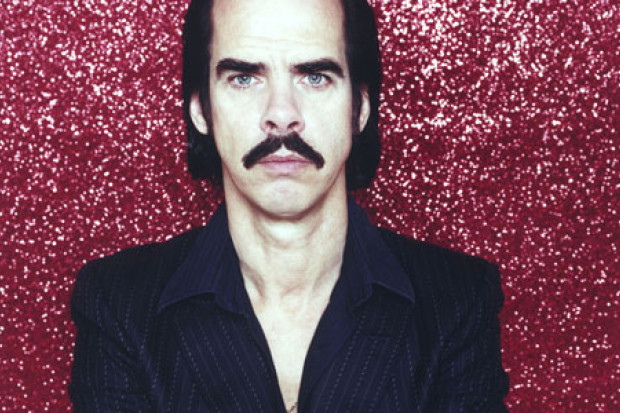On the naming of things
The naming of cats is a difficult matter,
It isn’t just one of your holiday games…
T. S. Eliot
How do composers find their titles? What does a title do? What is a good or bad title?
Composers don’t always find time to reflect on titles for pieces. And sometimes it shows. The historical model was to avoid the labour of invention by using generic titles such as ‘Sonata no. 1’. But things have moved on since then. Nowadays there is much scope for thought, and there is not always enough thought. The non-generic title is in the ascendant.
First, what were generic titles? Symphony, concerto, sonata and so on: in fact they have simple meanings, some of which are only known to the specialist. For instance, ‘partita’ means ‘a score’; ‘sonata’ means ‘a sounding piece’ (as opposed to a sung piece, so it means an instrumental piece). ‘Aria’: a tune; ‘symphony’: sounding (nice) together; ‘toccata’: touch (piece). Once explained in this way it looks like the composers lived in blissful innocence. Which of course they didn’t.
The generic title is extremely unfashionable right now, so this is why it is a good time to consider the subject of naming. Generic titling hasn’t died completely yet, but it is endangered. Using one carries a message: either anti-modernist or pro-tradition (which, confusingly, aren’t necessarily the same thing). The non-generic title may or may not reveal something about the nature of the piece, but it always reveals something about the composer! For instance, what are you likely to think about a composer who gives pieces wispy quasi-poetic titles all the time? I mean the sort that describes moods, pretty colours, pleasant pastimes and so on. It begins to look like the composer is deluded about reality, and the function (if any) of art.
I have no idea where or when the rot started, but now you can’t just get by with a generic title. Once Beethoven endorsed ‘Scherzo’ (‘a joke’) and it became generic, this may have been a watershed moment. Of course pieces that had a text or drama always had descriptive titles, and these drifted across to other music from time to time. For purely instrumental music, however, with no glimmer of a connection to text, the composer has a seemingly bewildering choice.
In fact, the composer has a number of identifiable patterns to choose from. The title can do a number of things. It can draw attention to a feature in the music, as with Harmonies or Melodien. The interesting thing here is that the choice ones seem to all be taken. Polyphony is gone (Boulez’s Polyphonie X), even the not very good Notations (must be said in French though). I have called one piece Nuance, as I regard nuance to be a rather unsung parameter of music alongside pitch, time and so on. Many of my pieces feature heterophony, which as a title is not ‘gone’, but too ugly to use. Which raises that other issue of ‘it has to sound right’.
If your music is technically inventive itself, then it should turn out that you can still put a musical, or at least technical, feature into the title. Good examples are Kreuzspiel (Cross-play) and Pithoprakta (actions through probabilities). These same examples also bring in the question of composers sounding obscure, abstract or aloof, and also raise the issue of language: it is quite authentic for Xenakis to choose a title in Greek, but for an Irish composer to do the same will seem pretentious. Can we use German or French though? That depends… on whether or not you care about appearing to seem a show-off.
A whole essay could be devoted to Xenakis’s titles alone: he had quite an ear for the sound of words, and he usually found a really good reason for the title. Morsima-amorsima, Kraanerg, Anaktoria, Keqrops sound other-worldly, incantatory and so forth, but each connects in a direct way with the piece they belong to. He had his off days too: Dmaathens, Xas, Metastaseis, Roáï. His preference for one-word titles is noteworthy; these help a composer to sound assured (and serious), if that is desired. Going for a musical process that relates directly to the piece is, then, a serious sort of thing to do, and will align the composer with modernism and against romanticism, but there is a caveat: Raymond Deane once groaned at a title of mine because it ended in -tion. (Suspiration, since you ask; an awful title.) He is right, there are many less-well-known composers all over the world right now putting a -tion word on the front of their latest precious baby, seemingly unaware that they are merely adding to a mountain of similarly boring-sounding scores. Circulation, Undulation, Demarcation, Dissolution. Big names, too, have stoked the fire: Notations (again), Ionisation (Varèse), Ramifications (Ligeti).
There are other ‘musical’ titles; those that play on generic titles with a contemporary twist. ‘Flute and Orchestra’, ‘Oboe and Orchestra’, ‘Piano and Orchestra’, all from Feldman, are extra-dry. Lacking ‘Concerto for…’, they become fragments – a comment on the (current) nature of structure. Then there is Tanzsuite mit Deutschlandlied (danse suite with German songs) from Lachenmann. This is really about breaking taboos: it has been described as a ‘double provocation’. Tanzsuite – Lachenmann was not about to join Germany’s composers known as the ‘young conservatives’ who were embracing such titles, and yet he provokes his own followers by using it; and Deutschlandlied – it was still a provocation to evoke nationalism in Germany at this time – although with both elements as they play out in the piece he is in fact confronting the comfort zone of the average listener. String Quartet in Four Parts from Cage is about what goes on in the music, or rather doesn’t. It sounds banal and ironic, both intentional on Cage’s behalf. This is an area that has not been exhausted, young composers note. Americans are most fond of the direct kind of title: many backfire, such as Carter’s A Celebration of some 100 x 150 Notes which is a dire title for a great piece, or Babbitt’s Semi-Simple Variations.
Mannerisms
Fleeing from the certainty that radiates from the short titles of other modernists, Luigi Nono was fond of giving an air of uncertainty by using a lot of (lower case) words, subtitles and also ‘…’ to connote the fragment. His titles were evocative and poetic: no hay caminos, hay que caminar… or la lontananza della upotica futura. They usually succeed in sounding poetic rather than mannered, or at least that’s how I see it! But it sounds mannered when somebody else does it. It is time to rest the three dots, at the very least.
Nono’s titles still have a lot to do with the content of the music, but it is the poetic content here. He was usually concerned with a political point, or a celebration of a fellow artist, but it is clear that he does not want to show off his compositional techniques. This was a reaction against those around him.
Celebration of a fellow artist (or scientist) brings us to the dedication/homage type. There are those that simply state a dedication: For Frank O’Hara and For Bunita Marcus (from Feldman), To Herbert Brün (Dennehy), or more poetically: a carlo scarpa, achitetto ai suoi infiniti possibili (Nono again) or finnissys fifty (Richard Emsley there, referencing Joyce alongside colleague Finnissy). And there are multi-layered titles that refer to a person and to something in the music. Deane’s Quaternions does two things: celebrate the mathematical achievement of Irishman William Rowan Hamilton (who invented the quaternion equation), and refer to the piece’s concern with four-note chords. Volans, too, has his mathematician, with The Ramanujan Notebooks, 4th String Quartet.
There is a danger that referring to someone of perhaps obscure distinction might imply that the composers want the distinction (and not the obscurity) to rub off on themselves, so this route is not for the sensitive, modest type. (My own Ockham’s Razor manages to do this, and be a cliché too!) Most composers have a monster ego under a diffident shell, so the world has many such pieces. To remain on the safe side, it is best to dedicate to those less famous than oneself, if such can be found.
Composers rarely consider a whiff of elitism to be a problem, however, and they do have a point: something/someone must act as counterweight to the dumbed-down background media-supported culture. Thus unashamedly celebrating ‘high’ culture is a frequent resource for the title. Just as the old poets were fond of referring to classical figures, new composers can’t get enough of Cassandra, Orpheus or Apollo. I worry that this may make the composer sound lost in the past, though in Ferneyhough’s case (Cassandra) it works to balance the feeling that he is lost in the future.
Now that we are out into the open country of titles that do not connect obviously with the how of the music, there is infinite variety, and a lot of awful titles. There is a tranche of composers working with varying success at odd or wacky titles. Gerald Barry usually succeeds with his because the humour is both dark and obscure (or does that just make it an in-joke?). Chevaux de frise sounds wispy and pretty, but refers to a medieval human-slicing machine used to dispose of captured soldiers. Triorchic Blues refers to a castrato fathering illegitimate children courtesy of his remaining third testicle, while the jolly sounding Swinging Tripes and Trillibubkins is an archaic way of talking about guts hanging out of the living after a sword battle or suchlike. These titles work so much better than Circumnavigating the sea of shit (Paul Steenhuisen – a good composer), or The Rather Unfortunate Demise of Mr Whippy (Brian Irvine). Misfiring wit may or may not be better than the opposite problem of the bland title: how many titles have ‘time’ or ‘timeless’ in the title? We know that music moves through time – so enough!
I said that the generic title was out of favour, but actually it is not quite so. A few really influential composers of the 50s and 60s were against it, but not everyone. Eastern Europeans tended to stick with ‘Concerto’ and ‘String Quartet’ and so on, even those that came west early on. While the further west you go, i.e. North America, the more adventurous the titling. This is probably due to the more intertwined relationship there between the language of commerce/advertising and the language of high culture, traceable to the pop art movement. Finally, related to all this, there is the problem of thinking of an original title, and then discovering that lots of pieces out there share it. What about a website where you can register and/or check your title to see how many others across the world have used it?
(Final tip for any composer still reading: avoid Sanskrit, I’m afraid there are tons of Koans and Samsaras already.)
Published on 1 July 2006
John McLachlan is a composer and member of Aosdána. www.johnmclachlan.org














